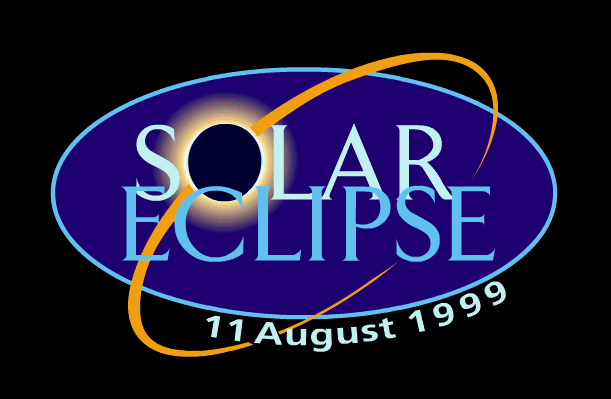 On
the day of the eclipse
On
the day of the eclipse

This is a repeat of what you did the day
before the eclipse.
8:30 am to 13:00
Record the time of each measurement (they don't have to be evenly spaced).
Once every 20 minutes is fine, if you want to make samples more often then
that is better. But the intention is not to stop you enjoying the
eclipse.
When will the eclipse effect the radio
An important thing to note is that the maximum effect on your radio signal
WILL NOT be the same as the eclipse is at its maximum overhead. Why?
So making these observations should NOT interrupt your eclipse watching
(please look at the safety
information about not looking at the sun).
About 40-30 minutes before of the moment
of totality for the radio path, things will hopefully change much more
rapidly. At this time you may want to make observations more often.
Each time you make an observation:
If you are transmitting,
-
broadcast your call sign (have a chat!)
-
then a carrier or CW tone for about 15-20 seconds,
-
then pause for a 15-20 seconds and do not transmit anything.
If you are receiving,
-
note down, the time and the call sign (if you are working with more than
one person),
-
then note down the signal strength on your calibrated S-meter, during
the 15-20 second continuous tone.
-
then note down the signal strength during the pause in transmission after
the tone., i.e. the background noise level.
Continue after the time eclipse will have past for about 2 hours
(so to about 13:00 BST).
If at anytime your reception was affected by interference from another
station, please DO note it down when it occurred.
If you cannot give your signal strength readings in dB (dB above noise)
then use whatever units are on your S-meter is fine.
What not to do
Once you have set your equipment up for the start of the experiment you
must resist the temptation to change it, particularly the transmit power
or the automatic gain or bandwidth on the receive station
| How to do some radio
experiments | Back
to Radio Experiments |
11/02/1999 Ruth Bamford
 On
the day of the eclipse
On
the day of the eclipse On
the day of the eclipse
On
the day of the eclipse